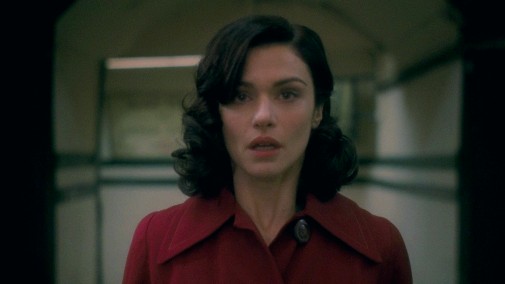In honor of Rachel Weisz's 50th birthday this weekend, we’re revisiting The Deep Blue Sea with a bonus entry in the "Almost There" series. Here's Cláudio Alves...
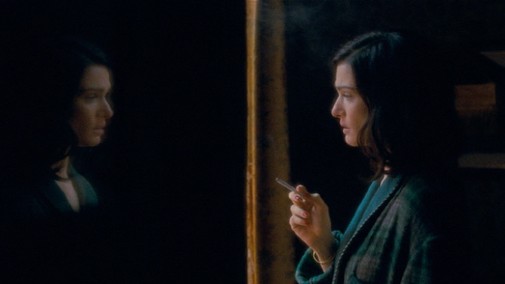
To portray depression compellingly is a great challenge for any actor. The danger in in authentic internalization is becoming a dull and an uninteresting subject for the camera, an unsolvable cipher. On the other hand, attempts at creating entertainment out of a depressed person is a good way to fall into the perilous pit of superficiality. Mental health issues are thus transformed into walls that block the audience's emotional investment or colorful quirks with no relation to reality. It's a difficult tight rope but some great thespians can walk it. More importantly, some can do it and make it look easy.
Such is the case of Rachel Weisz who came close to a nomination for Best Actress in 2012 thanks to her virtuoso work in Terence Davies' sad song of love and postwar despondency, The Deep Blue Sea…
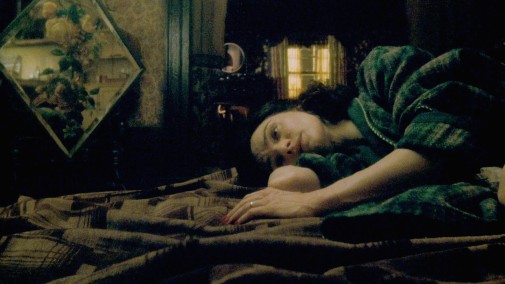
Sometime around 1950, London is a smoky carcass trying to rise from the rubble of war and shared trauma. Its streets are peppered with buildings left to ruin and lonesome figures, wandering with empty eyes. One such person looks on from a window when we first meet her. She's Hester Collyer, the wife of an honorable judge. Recently, Hester has left her wealthy husband in pursuit of a doomed love affair with a younger man. She's a woman but she's also England, a metaphor for a postwar nation and its persistence in face of despair. She's a symbol but she's a person. Hester's also suicidal.
Davies adapts the chronology of Terrence Rattigan's original play, conceiving something that's borderline impressionistic. We experience Hester's plight through memories, flashes of feeling and portentous omens, a linear story interrupted by the overflow of gloomy sentiment. It's a melodrama philtered through the perspective of a depressed person, saturated with smoke and hazy light, as anti-dramatic as it is poignant. In the middle of it all, Rachel Weisz must be a human anchor to the script's heavy themes and her director's bold stylizations. She must be woman and symbol, lovelorn heroine and a self-destructive creature.
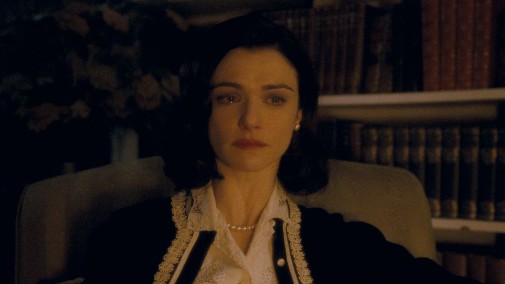
Weisz negotiates these different facets and never calls attention to her craft. From the moment we see her contemplate the street before attempting suicide, Hester is always an assured creation. If she's mysterious, it's because the film withholds from the viewer, preferring to immerse them in mood rather than bore them with blatant explanations. Still, even throughout its most oblique passages, Weisz never allows us to believe she's not in control of the characterization. Her Hester is a masterpiece of contained emotion, a psychological portrait painted with the faintest insinuation of an inner life rather than a thick brushstroke of drama.
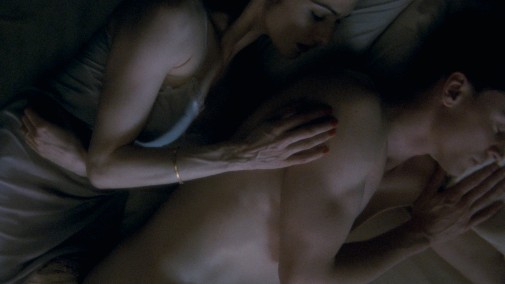
We get to know her through the barely contained irritation when faced with her mother-in-law's passive-aggressive jabs, through a tentative lick of lustful skin and the brittle apathy of a discontent spouse. We know her through the smiles she seems to force when at the pub with her younger lover, eyes fleeting about as if trying to deduce what's an appropriate reaction to her surroundings. In that merry setting, she doesn't look like a happy woman. She looks like someone trying desperately to be happy, playing the part of a happy person and half-convincing herself along the way.
Similarly, her romance is tainted by the foul taste of self-delusion. Hester loves her beau, she wants him, but that want and affection are barely more than abstractions. Still, she needs those abstract notions to have purpose, to feel something, anything. When she realizes he doesn't love her back, at least not as compulsively as she loves him, the wallop of sentiment is painful to watch. Weisz doesn't emote, so much as lets emotion drain from her face, the light dying behind her eyes. She's so great that it's difficult to imagine this particular film working with anyone else in the role.
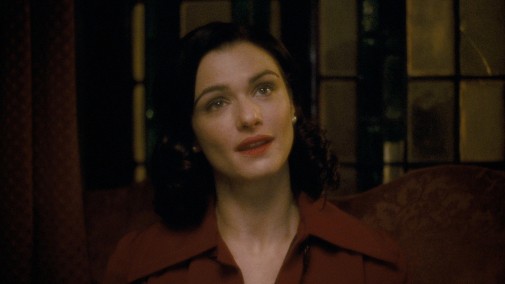
Other women have played Hester Collyer, including Vivien Leigh, but Terence Davies' version of The Deep Blue Sea feels incredibly specific to Rachel Weisz. The actress possesses both the discipline to deliver a masterclass on how to act out romantic depression, as well as the glamourous magnetism to make the subdued underplaying worth watching. Smoking alone in her flat, Weisz's Hester appears to be a diva of Old Hollywood transplanted into a half-remembered nightmare. She's a dream of glamour and a terror of postwar ennui. In many ways, she's the dark twisted twin to Celia Johnson's Laura Jesson from Brief Encounter.
However, while Johnson plays a woman searching for happiness, Weisz plays someone that seems incapable of recognizing happiness anymore. Joy is an impossibility for the discontent wife, a distant thing that's so unreachable one doesn't even have the energy to try and reach. Drowning, she struggles to breathe but never attempts to get off the water. She poured all that was left of hope into someone who didn't deserve it and now she's empty. Still, like England after the war, she perseveres and, amid all the horror, there's beauty to be found in that unshakeable quality.
